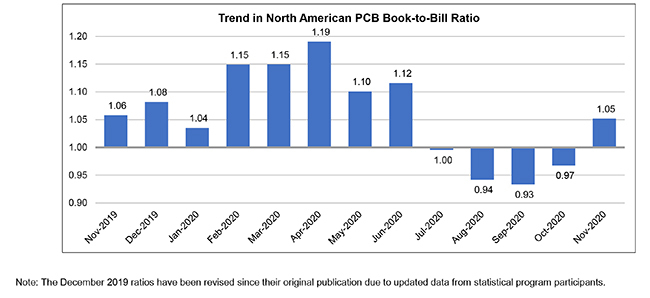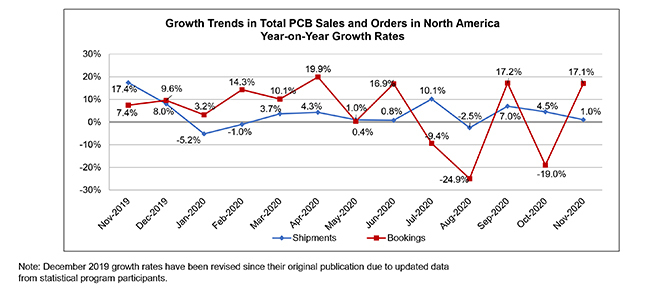IPC applauds the U.S. Congress for approving more than $900 billion in aid to support recovery from the COVID-19 pandemic. The package provides economic support in the form of unemployment aid, direct payments, and business loans, as well as funding for vaccines and testing.
IPC had urged Congress to pass a COVID-relief package with provisions to help the electronics manufacturing industry cope with the pandemic and contribute to the economic recovery, including extending the Paycheck Protection Program, modifying unemployment insurance benefits, and providing aid to state and local governments to ensure essential services are maintained.
Going forward, IPC will keep an eye on the implementation of the provisions of interest to our industry, and we will continue to advocate for measures to increase business certainty and long-term recovery.
Below are details of key measures in the aid package.
Paycheck Protection Program
The bill would authorize a second round of loans under the Paycheck Protection Program (PPP). The provisions included:
- Appropriates $284.5 billion in new funds for the U.S. Small Business Administration (SBA) to guarantee first- and second-round loans.
- Allows businesses with severe revenue reductions a second draw on loans up to $2 million.
- Expands the uses of PPP funds that would qualify for loan forgiveness, including personal protective equipment purchases, adaptations for COVID-19 safety-related measures, operational expenses, and supplier costs.
- Allows PPP borrowers to choose a loan forgiveness period ranging from eight to 24 weeks.
- Grants borrowers flexibility on eligible expenses paid for with forgiven PPP loans, reversing guidance from the Internal Revenue Service.
- Bars publicly traded companies from receiving PPP loans.
- Requires interest rates on PPP loans to be calculated without compounding or adjustments.
- Clarifies that approved PPP payroll costs include employer-provided group insurance benefits.
- Clarifies that businesses must have been in operation on Feb. 15 to qualify for a PPP loan.
Employee Retention Tax Credit
The bill extends and expands the CARES Act refundable payroll tax credit for “eligible employers” affected by COVID-19 through June 30, 2021.
- The credit percentage is increased from 50% to 70%.
- The amount of qualifying wages per employee is increased from $10,000 for the year to $10,000 per quarter.
- The gross receipts test is changed from a 50% quarterly decline when compared to the prior year quarter to a 20% decline.
- The full-time employee threshold is increased from 100 to 500.
- Employers can claim the credit and participate in the Paycheck Protection Program but with restrictions to prevent double dipping.
- Codifies IRS guidance whereby health plan expenses can be counted as qualified wages when employers pay no other wages, e.g., furloughed workers who continue to get healthcare.
- New employers are eligible for the credit.
Disaster Loans (EIDL)
The CARES Act expanded the SBA’s Economic Injury Disaster Loan (EIDL) program and authorized the agency to advance as much as $10,000 for recipients to pay sick leave to workers affected by Covid-19, retain employees, and make other covered payments. This new measure would:
- Double the authorization for advance funds to $40 billion, from $20 billion, and extend it through Dec. 31, 2021.
- Provide $20 billion for certain entities to receive the difference between $10,000 and the advance funds they received under the CARES Act. Eligible recipients would include those with 300 or fewer employees that are located in low-income communities and that had economic losses of at least 30% over eight weeks compared with a similar period before the pandemic.
- Repeal a provision from the CARES Act that requires PPP forgiveness amounts to be reduced based on EIDL advances.
Loan Payment Relief
The CARES Act provided $17 billion for the SBA to pay the principal, interest, and associated fees for loans under the 7(a), 504, and microloan programs for six months. The new measure provides $3.5 billion to extend the payment relief for additional periods depending on the program and the small business type, and caps monthly payments at $9,000 per borrower.
Other Measures
- Small Business Provisions: Provides $1.92 billion for the SBA to:
- Increase its maximum guarantees for 7(a) loans to 90% through Sept. 30, 2021.
- Temporarily increase 7(a) express loans.
- Temporarily waive certain fees associated with the 7(a) and 504 loan programs.
- Allow eligible small businesses to use 504 program funds to refinance existing debt equal to 100% of the cost to expand those businesses.
- Support as much as $7.5 billion each year in debt refinancing for 504 program projects that do not involve expanding a small business.
- Allows businesses participating in the 8(a) program on or before Sept. 9 to extend their participation by one year.
- Unemployment Leave: Restores and reduces to $300 per week, from $600, the Federal Pandemic Unemployment Compensation (FPUC) created under the CARES Act. The extra payments, which expired on July 31, would apply to weeks of unemployment after Dec. 26 and through March 14, 2021. The bill extends other CARES Act unemployment benefits set to expire on Dec. 31 through March 14, 2021.
- Direct Payments & Tax: Provides another round of direct payments of as much as $600 for an individual, $1,200 for joint filers, and $600 for each qualifying child. It would apply a similar income limit and phase-out as the CARES Act, reducing the payments by 5% for individuals with adjusted gross incomes of more than $75,000. Filers with AGIs greater than $87,000 would not receive a payment. Payments would be based on 2019 taxes.
- Payroll Tax Deferral: Workers who deferred their payroll taxes since September would be given until Dec. 31, 2021, to pay back the government, instead of April 30, 2021.
- Paid Leave Credits: Extends credits for paid sick and family leave provided under the second coronavirus relief package through March 31, 2021.
- Gross Income: Clarifies that gross income would not include certain forgiven debt, emergency SBA disaster loans, and loan repayment aid provided by the CARES Act.
- State & Local Aid: State and local governments that received funding through the CARES Act to pay for unbudgeted expenses tied to the COVID-19 emergency can use remaining funding through Dec. 30, 2021.
- HUAWEI/ZTE: Provides $1.9 billion for a Federal Communications Commission program to assist small service providers replacing equipment made by Chinese firms Huawei Technologies Ltd. and ZTE Corp.
As always, please contact the IPC Government Relations team if you have any questions or concerns about these measures.


